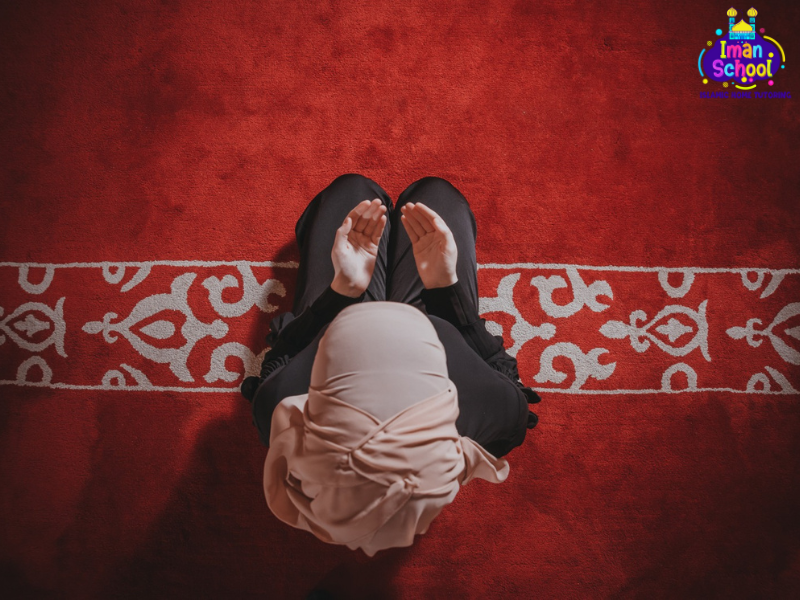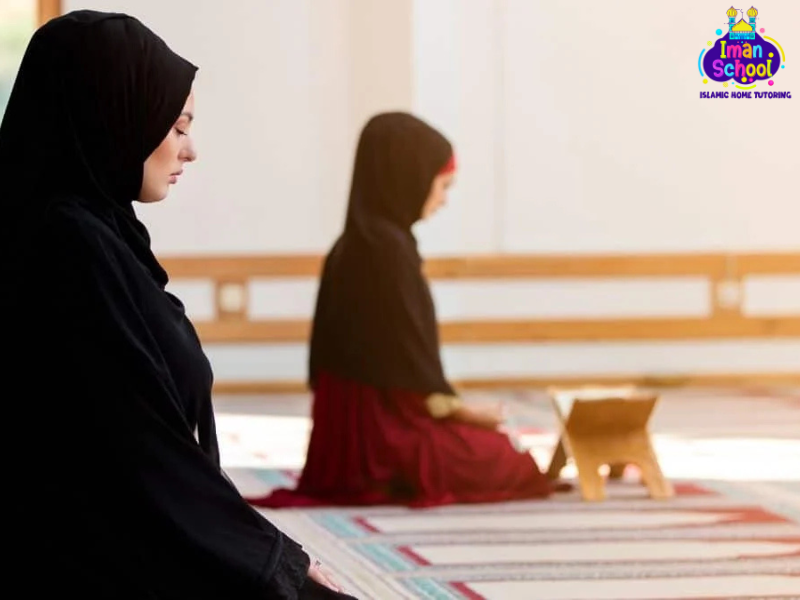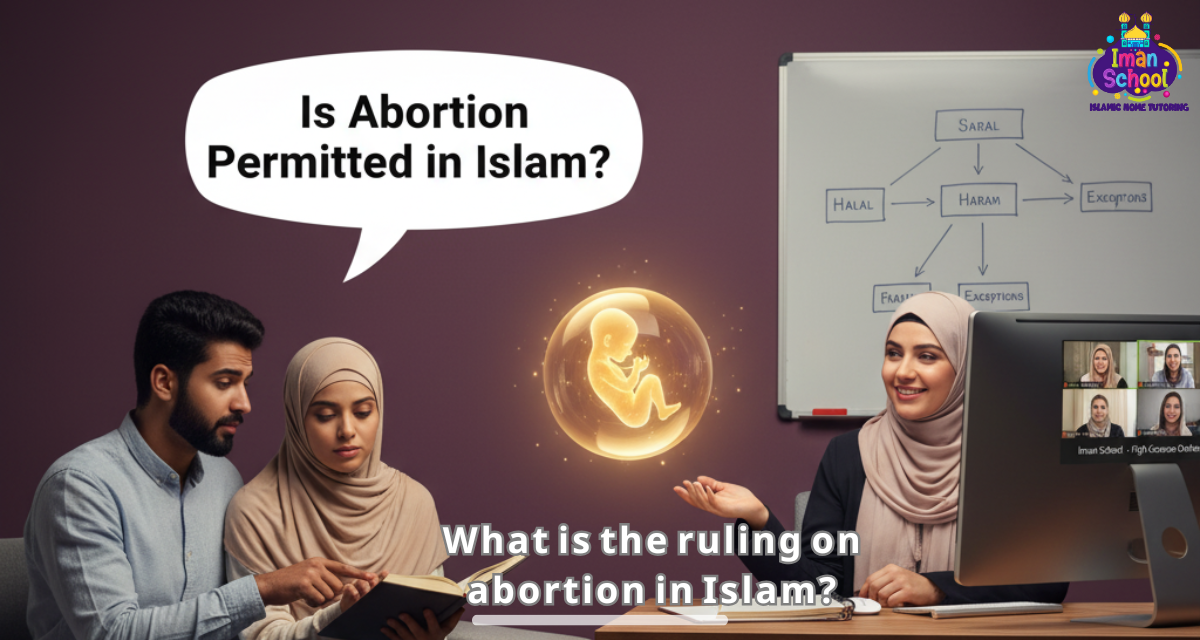The question of "Why Can't Muslim Woman Pray on Their Period?" is one of the most frequently asked inquiries regarding women's worship in Islam. For new Muslims and those seeking deeper understanding, it can sometimes be a point of confusion or even perceived as a restriction. However, Islamic law (Fiqh) provides clear rulings rooted in divine wisdom and an emphasis on ritual purity (Taharah).
Far from being a burden, these guidelines offer ease and a profound spiritual perspective on women's health and worship. This article will thoroughly explain Why Can't Muslim Woman Pray on Their Period, detailing the rulings, their wisdom, and what activities are still permissible and encouraged during this natural state.
The Ruling: Menstruation and Prayer in Islam
In Islam, menstruation (hayd) is considered a state of ritual impurity. Consequently, a Muslim woman is exempt from performing certain acts of worship during her menstrual cycle. The most prominent among these is formal prayer (Salah).
The concise answer to "Why Can't Muslim Woman Pray on Their Period?" is that it is a direct divine command found in the authentic teachings of Islam, designed to accommodate women's natural physiological state and maintain a specific standard of ritual purity for formal worship. This ruling is part of the broader Menstruation Rules in Islam that govern a woman's devotional life.

Wisdom Behind the Ruling
The prohibition of prayer during menstruation is not a punishment or a devaluation of women. Instead, Islamic scholars explain several layers of wisdom behind this ruling:
Ease and Compassion
Islam is a religion of ease. Menstruation often comes with physical discomfort, pain, fatigue, and emotional fluctuations. Exempting women from the physically demanding ritual of prayer offers them a period of rest and relief, a testament to Showing Compassion and Ease in Islamic Law.
Ritual Purity (Taharah)
Salah (prayer) requires a state of complete ritual purity, free from both major and minor impurities. Menstruation is a major impurity (najasah), which necessitates a full ritual bath (Ghusl) before prayer can be resumed. This emphasis on Purity in Islam Menstruation is central to understanding the ruling.
Divine Command
Ultimately, the primary wisdom is simply that it is a command from Allah, revealed through the Prophet Muhammad (peace be upon him). Muslims submit to divine commands out of faith and trust in Allah's infinite wisdom, even if the full rationale is not always immediately apparent to human intellect. This directly answers Why Can't Women Pray on Period Islam from a theological perspective.
Discover the answer to this question: Can You Read Quran Without Ghusl
What is Not Allowed During Menstruation?
Understanding Why Can't Muslim Woman Pray on Their Period is just one part of the broader Islamic Rulings Menstruation. During her menstrual period, a Muslim woman is generally not permitted to perform the following acts of worship:
-
Prayer (Salah): She is exempted from all five daily prayers. There is no requirement to make up these missed prayers after her period ends. This is the core of Muslim Women Prayer Period rulings.
-
Fasting (Sawm): She is exempted from fasting during Ramadan or any voluntary fast. However, she must make up the missed days of Ramadan fasting after her period ends. This addresses Fasting During Periods Islam.
-
Touching the Physical Mushaf (Copy of the Quran): The majority of scholars hold that a woman on her period, being in a state of major ritual impurity, should not directly touch the physical copy of the Quran (Mushaf).
-
Circumambulating the Kaaba (Tawaf): Performing Tawaf during Hajj or Umrah is not permitted.
-
Entering a Mosque (for residence or staying for worship): While passing through a mosque might be permissible if there's no alternative, staying in one for worship is generally not allowed.
These exemptions are part of the detailed Period in Islam Rules ensuring Najasah and Taharah Menstruation guidelines are followed.
What is Still Permitted and Encouraged?
It is a common misconception that menstruation completely severs a woman's connection to worship. This is far from the truth. While some acts are prohibited, many others are still permitted and even highly encouraged, ensuring that Spiritual Acts During Menstruation continue. This helps clarify the practical side of "What to Do During Period Islam."
-
Dhikr (Remembrance of Allah): All forms of remembrance of Allah, such as Tasbeeh (Subhanallah), Tahleel (La ilaha illallah), Tahmeed (Alhamdulillah), and Takbir (Allahu Akbar), are highly encouraged.
-
Du'a (Supplication): A woman can make all forms of personal supplication to Allah, asking for her needs, forgiveness, and blessings.
-
Listening to the Quran: She can listen to Quranic recitations from a physical Mushaf (without touching it directly), from a phone, or via audio. This is permissible because it does not involve touching the sacred text directly or verbal recitation. This addresses Quran During Menstruation specifically regarding listening.
-
Reading the Quran from Memory or Digital Devices: The majority of contemporary scholars permit reading the Quran from memory or from a digital device (like a phone or tablet) without touching the physical Mushaf, particularly for review, teaching, or seeking blessings. This is a crucial clarification regarding Quran During Menstruation.
-
Reading Books of Islamic Knowledge: She can read books of Tafseer (Quranic commentary), Hadith, Fiqh, and other Islamic sciences.
-
Giving Charity (Sadaqah)
-
Maintaining Good Character: Continuing to uphold Islamic ethics, kindness, and good manners.
These activities allow a woman to maintain her spiritual connection and continue accumulating good deeds, showing the vast opportunities available during this time, even with the Exemptions from Prayer Islam.
The Concept of Ritual Purity (Taharah)
Understanding Purity in Islam Menstruation is rooted in the broader concept of Taharah, which encompasses both physical cleanliness and ritual purity. Islam places great emphasis on purity for acts of worship. Menstruation is a state of "major ritual impurity" (hadath akbar), similar to the state of Janabah (impurity after sexual activity or seminal discharge).
To exit this state of major impurity, a complete ritual bath, known as Ghusl, is required. Ghusl After Period Islam is mandatory once menstruation ends, enabling a woman to resume prayers, fasting, and touching the Mushaf. This concept clarifies Najasah and Taharah Menstruation.
Historical Context and Scholarly Consensus
The ruling that a menstruating woman does not pray is not a modern innovation but a well-established consensus among Islamic scholars throughout history. It is based on authentic Hadith (Prophetic traditions) and the consistent practice of the companions and subsequent generations.
For instance, Aisha (RA), the wife of the Prophet (PBUH), narrated: "We used to menstruate at the time of the Messenger of Allah (PBUH), and we were commanded to make up the fasts, but we were not commanded to make up the prayers." (Bukhari, Muslim). This historical consistency reinforces Why Can't Women Pray on Period Islam.
The guidelines fall under Islamic Fiqh Menstruation, which meticulously outlines these and other related rulings.

Find out the answer: Does a woman have to wear hijab when reading quran
Addressing Common Misconceptions and Questions
Is it unfair to women?
No. As mentioned, it's a compassionate exemption and a divine command. It highlights Allah's understanding of Women's Health in Islam and His desire to ease burdens. It also signifies that worship is not limited to physical rituals.
Does it mean women are 'unclean'?
The term 'impure' (najis) in Islamic jurisprudence refers to a state of ritual impurity, not moral or physical dirtiness. It's a legal state that affects specific acts of worship, similar to a man needing Ghusl after sexual impurity. It does not imply personal dirtiness or spiritual inferiority.
Can I still make up for missed prayers?
No, missed prayers during menstruation are not to be made up. This is a unique exemption that differs from missed fasts during Ramadan, which must be made up. This is explicitly part of Salah During Periods Islam guidelines.
Showing Compassion and Ease in Islamic Law
The rulings surrounding menstruation beautifully illustrate the inherent compassion and ease in Islamic Law. They highlight that Allah does not burden souls beyond their capacity. Instead of demanding prayer during a potentially difficult physical state, He provides relief and substitutes it with other forms of worship and remembrance.
This reflects the deep understanding and mercy embedded in the framework of Islamic Rulings Menstruation, ensuring a woman's continued spiritual connection while respecting her natural physiological cycles. This divine wisdom addresses Can Muslim Women Pray on Their Period with kindness.
Read about: Human Rights in Islam
Online Courses in Fiqh and Aqeedah
The question of "Why Can't Muslim Woman Pray on Their Period?" is answered by understanding the divine wisdom, compassion, and emphasis on ritual purity in Islamic law. This ruling, far from being a restriction, offers ease and allows women to maintain their spiritual connection through alternative acts of worship and remembrance during their menstrual cycle. It underscores the comprehensive nature of Islam's guidance, which caters to the realities of human life with profound mercy. Understanding these Menstruation Rules in Islam empowers Muslim women to navigate their faith confidently and peacefully.
Learn Islamic Fiqh and Aqeedah Online with Qualified Scholars
For a deeper understanding of Islamic Fiqh Menstruation rulings, to address all ambiguities, and to gain clarity on any doubts, seeking knowledge from qualified scholars is paramount. Iman School is dedicated to providing authentic online Islamic education. We offer comprehensive courses in Fiqh (Islamic Jurisprudence), Aqeedah (Creed), and Sharia, taught by highly qualified male and female scholars and Shaykhs.
Our instructors are expertly trained to explain complex rulings, clarify doubts, and provide clear answers to all your questions, including detailed insights into Why Can't Muslim Woman Pray on Their Period and other matters related to Women's Purity Islam. Join Iman School to deepen your knowledge and understanding of Islamic rulings with qualified teachers.




